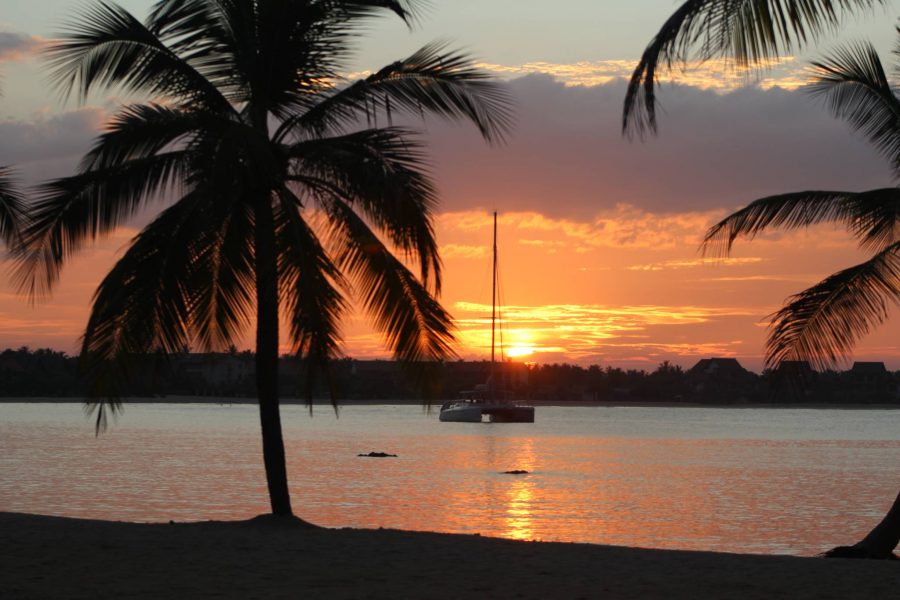
Sri Lanka has opened its border for tourists, mainly for those arriving by air and booked into hotels in the travel bubble. The government has opened its doors to the world once again after welcoming its first contingent of international tourists under the country’s strict new Covid protocols, stressing it won’t yet be making any exemptions for vaccinated travellers.
The government is monitoring the progress of air travel tourism to ensure there will not be any community spreading of the virus from opening up the borders, according to Priyantha Perera, heading up Asia Pacific Superyachts (APS) in Sri Lanka.
“The next consideration is a focus on opening up to cruising tourism. We have written to the authorities requesting them to open up for cruising and hoping to see a positive response”.
Perera states, “The many regulations concerning tender boat operations and lack of anchorages suitable for superyachts has held back significant superyacht cruising, which now actually adds to its attraction as a stunning adventure cruising destination, once the borders are open to arriving yachts”.
Perera advises that yachts are currently only permitted to enter Port to receive the required supplies such as Fuel, Provisions, etc. The crew are not permitted to go ashore and crew changes & commercial flight crew arrivals are not permitted: “All crew arrivals / departures have to be through chartered flights from the Maldives operated by a government appointed service provider wherein the crew needs to book into the ‘Off Shore Crew Transit Hub’ (OCTH). Crew must stay for two days in isolation before being transferred on board a vessel”, he added.
Once borders are open to yachts, Galle is the preferred port: “Refueling and provisioning at the old port of Galle is straightforward and this is where most yachts clear-in, and it is the port where conditions for visiting yachts have shown some improvement. Once formalities are completed, special permission must still be obtained before travelling to other northern states. An agent is required to clear into and out of Sri Lanka and basically organise everything”. APS can handle all needs and specifically advise on moorings and restrictions at Galle, as space is very limited.
APS director Perera in Sri Lanka notes there are important procedures in place for Captains: “For example, when the country lifts restrictions guidelines will still be in effect that no boat can cruise around the country without obtaining Defense Ministry & Sri Lanka Customs Approval. Although the Defense Ministry has relaxed its stance with regard to cruising around, Captains need to provide an itinerary of the cruise with full details of guests on board to the Sri Lanka Navy and the Coast Guard and you are not permitted to change the route without prior approval from the Defense Ministry”.
“Additionally, Sri Lanka Customs do not permit any beach landings. All movement of Goods & People must be carried out via Commercial Ports. However, transfer of Goods & People via Fisheries Harbours under their supervision with prior approval from Customs as well as the Fisheries Ministry is permitted.”
“In planning, the best time to visit is from October to April – when the bay is blue and the sea is calm with light winds and blue sky. During these six months all the conditions are spot on to enjoy some wonderful cruising experiences”, explains Priyantha.
Boating has been important in Sri Lanka going back many centuries to its fishing industry. The culture of this remote country, separated from India by a few nautical miles along the narrow Palk Straits, is integrally with boating. Sri Lanka remains a useful stop for yachts en route to the Red Sea and a good point of departure for cruising the Maldives, Chagos and Seychelles. A country of 1,300 kilometres of coastline, eight Unesco World Heritage Sites and 15 national parks are among the reasons Sri Lanka is known as ‘The Pearl of the Indian Ocean’.
The two monsoon winds providing rain to the two corners of the country at various periods, makes Sri Lanka’s beach holiday a year round prospect. The north east winds make the south western coast sunny and the sea calm from November to March. The South West winds make the East Coast waters quiet with constant sunshine.
A possible boom in yachting has seen the rise of a number of luxury yacht building facilities in Sri Lanka. A few companies are in full operation designing and building yachts, masts, sails, yards, cordage, electrical components, mini marines and moorings. A technical school down south is training youth from fishing villages to build yachts and in electrical engineering and engine repairs and maintenance, while another academy trains students in sailing skills and ocean conservation.